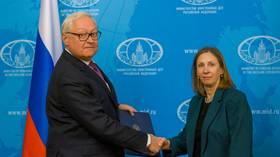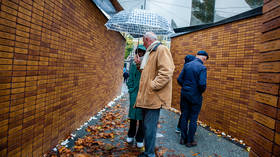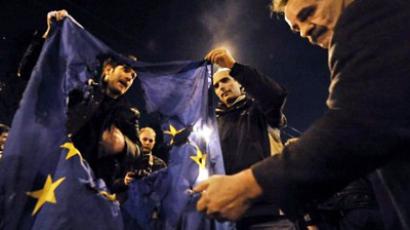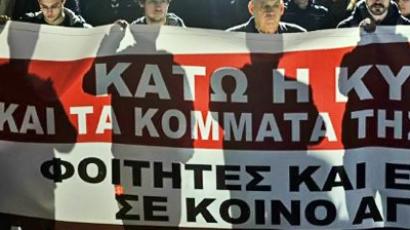Eurover the top! Brussels grows amid member state woes
Europe's top power couple has met in Berlin to discuss a new “fiscal compact” and to reach agreement on a financial transactions tax by March. But many euro-skeptics believe Brussels should start with itself rather than forcing others into more cuts.
When times are this hard, every cent counts.For the 17th year in a row, the European Court of Auditors refused to give the EU accounting books a clean bill of health.The court found that in 2010, 3.7 per cent of the EU's budget was spent “in error”.That is 4.5 billion euro essentially wasted due to mistakes – like ineligible or incorrect calculation of costs claimed to EU co-financed projects or breaches of public procurement rules.“To be fair, Brussels gets criticized because Brussels is easy to criticize. That said though, it shouldn’t forgive them for having that error rate,” believes Peter Spiegel, chief of the Brussels bureau of The Financial Times. “There is a feeling that is not unjustified. That in Europe, Brussels Commission, the institutions have not taken a real hard look at their budgets and done the hard cutting that a lot of members have had.”In fact, the EU Commission and Parliament wanted to have some 133 billion euro to spend next year, but settled on 129 billion after tough negotiations with member states. That is still an increase of 2 per cent.“The EU budget uniquely continues to grow. It only ever goes in one direction. What they call a cut here means a slightly smaller increase then they would have wanted in an ideal world,” says Daniel Hannan, Member of the European Parliament from the UK Conservative party. “There’s two kinds of money in the world. There’s your money and there’s my money. We’re much more careful with the second than with the first. The trouble is, here in Brussels, it is all somebody else’s money.”Mostly, ordinary people’s money.Which is why criticism arose when the Budgets Committee approved 38 million euro for the purchase of three buildings to increase office space for MEPs and their staff.The project will see the demolition of an existing building and the creation of a new one. The cost? One hundred and twenty-five million euro, 15 million of which will come from the EU budget.Critics cried foul. But the project’s supporters stand their ground.“When there is a new member state, you need new space. It is ridiculous to say that we don’t need more space when we have more staff. If you say that, you mean to say that staff are sitting on each others’ knees while working,” Thijs Berman, Member of the European Parliament from the Dutch Labor Party, insists. “We have this responsibility to do legislation for 500 million people in a proper way.”“Again there is an argument for this that these institutions do need facilities. The timing is just horrible. Because of the austerity imposed on a lot of the member states, the fact that Brussels is plowing on with grand plans for these beautiful new buildings just smells bad,” counters Peter Spiegel.Yet it is not just about new buildings for Eurocrats that raises eyebrows:“How hard is it to just come up with receipts when they have spent money? It’s not rocket science. The taxpayers pay, so it hurts them,” explains Pieter Cleppe, from the Open Europe think tank. In fact, some say the allure of being a Eurocrat may also be hurting poorer member states, losing their "best and brightest" to Brussels.“There are just people in those countries – the entrepreneurs, the people who could’ve done so much [by] making things, inventing things, selling things, creating businesses in their home states. Because nothing can compete with the advantages of being on the EU payroll, they start gravitating towards either directly the Brussels bureaucracy or indirectly,” laments Daniel Hannan.As the saying goes, if you can’t beat ’em, join ’em.But that is clearly not a win-win solution for everyone.














